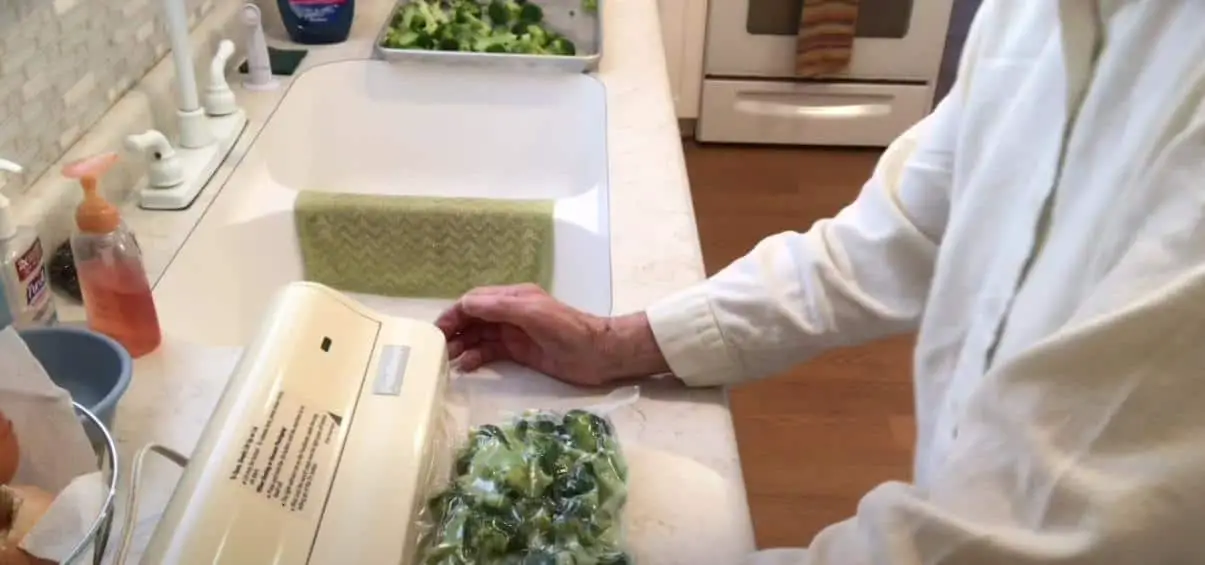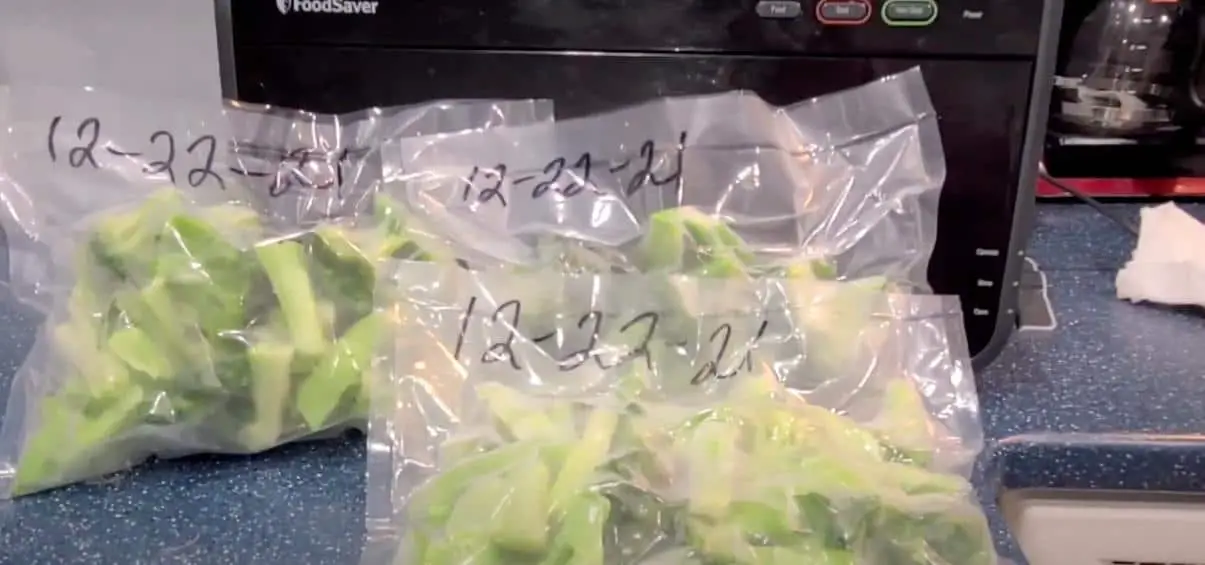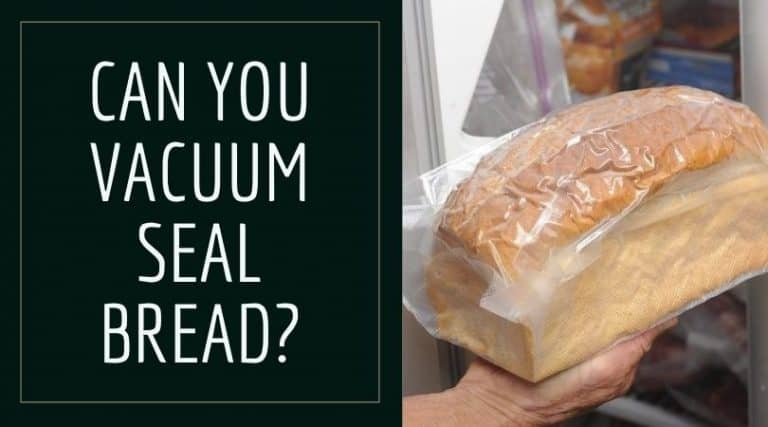Can You Vacuum Seal Broccoli? (Know The Details!)
Key Takeaways
- Yes, you can vacuum-seal broccoli.
- Blanching is necessary for cruciferous vegetables, but you can vacuum-seal fresh or frozen veggies.
- For freezing, you need to prepare the veggies correctly beforehand.
Looking to keep your broccoli fresh for longer? Why not try vacuum sealing it?
In this article, we’ll show you how to properly vacuum seal broccoli (and other vegetables), plus the benefits of doing so.
Learn how long sealed broccoli will last, where to store it, and more.

How do you make vacuum-sealed broccoli?
Vacuum sealing is a great way to preserve food. Boiling the broccoli first helps to kill any bacteria that may be present on the surface of the vegetable.
Cooling broccoli in ice water helps to stop the cooking process and prevent it from becoming overcooked.
Drying the broccoli off completely before vacuum sealing helps to prevent moisture from building up inside the bag and causing spoilage.
Can you vacuum-seal raw veggies?
While you can vacuum seal raw veggies, it’s generally best to blanch them first.
This is because the heat from the blanching process will help to kill any bacteria that may be present on the surface of the vegetables.
Vacuum sealers are available with a “moist” setting, which is ideal for sealing raw vegetables.
Can I vacuum-seal broccoli without blanching?
Vacuum sealing is a process that removes air from a container in order to keep food fresh.
In order to vacuum seal broccoli, the vegetable must first be blanched.
Blanching is a process of boiling water and then cooling the food in order to stop the cooking process.
This prevents the food from losing its color, flavor, and nutrients when sealed.
Which vegetables should not be vacuum sealed?
Vacuum sealing is a great way to extend the shelf life of your food. But there are some vegetables that don’t respond well to being vacuum sealed.
Mushrooms, garlic, onions, soft cheeses, and freshly cooked food will all go bad quickly if they’re vacuum sealed.
Bananas are also hard to vacuum seal because they’re wet. So if you’re looking to extend the life of your veggies, stick to dry items like carrots or potatoes.
What are the benefits of vacuum-sealing broccoli?
Vacuum-sealing broccoli is an effective way to extend its shelf life and reduce food wastage.
Additionally, vacuum-sealed broccoli will retain its flavor and nutrients better than if it were not sealed.
Here are some of the benefits of vacuum-sealing broccoli:
- Vacuum sealing helps to extend the shelf life of broccoli. Keeping the vegetable airtight, prevents oxidation and slows down the aging process. This means that your broccoli will stay fresher for longer.
- Vacuum sealing can also reduce food wastage. When properly stored in a vacuum-sealed bag, broccoli (and other vegetables) will last much longer than when left unsealed. This means that you can buy in bulk and save money in the long run.
- Vacuum-sealed broccoli will retain its flavor and nutrients better than if it were not sealed. The lack of oxygen in a vacuum-sealed environment prevents the loss of flavor and nutrients that can occur with traditional storage methods such as freezing or refrigeration.
Does vacuum sealing affect the taste of broccoli?
Vacuum sealing is a great way to preserve food and keep it fresh for longer.
Many people think that vacuum sealing affects the taste of food, but this is not true. Vacuum sealing does not affect the taste of broccoli.
How long does vacuum-sealed broccoli last?
Vacuum sealing is a great way to prolong the shelf life of broccoli and other cruciferous vegetables.
When done properly, vacuum-sealed broccoli can last up to 2 years. However, it is important to blanch the broccoli before sealing it in order to prolong its freshness.
Additionally, cruciferous vegetables like broccoli emit gas when refrigerated, but not when frozen.

What is the best way to store Vacuum sealed broccoli?
When it comes to preserving the freshness and nutrients of broccoli, vacuum sealing is one of the best methods available.
This is because it removes all the air from around the food, which in turn prevents oxidation and bacteria growth.
Vacuum-sealed broccoli will stay fresh for much longer than if it were stored in a traditional container with air.
One important thing to note when vacuum-sealing broccoli (or any other vegetable) is that you should always blanch it first.
Blanching involves boiling the vegetable for a short period of time, then plunging it into ice water to stop the cooking process. This helps to preserve its color, flavor, and nutrients.
Once your broccoli is blanched, be sure to pat it dry before vacuum sealing; otherwise, moisture can cause freezer burn or make your vegetables go limp.
You can use a ziplock bag rather than a vacuum sealer if you don’t have one, but it’s not recommended to store veggies in this manner without pre-blanching them first.
If you do choose to go this route, be sure to remove as much air from the bag as possible before sealing it shut.
Final Verdict
If you’re looking to keep your broccoli fresh for as long as possible, vacuum sealing is a great option.
However, before you seal it up, you’ll need to blanch the broccoli first. This will help prevent it from browning or losing its flavor over time.
Once it’s been blanched, simply seal it up in a bag and store it in the fridge or freezer.


